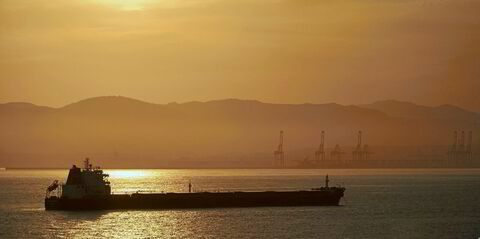AP Moller-Maersk’s (AP Moller’s) oil and gas subsidiary has pulled the plug on a campaign to pursue expansion in Brazil, the diversified Danish conglomerate told investors Tuesday.
The decision follows assessments that determined the value of fields Maersk Oil & Gas (Maersk Oil) acquired from SK Energy for $2.4bn in 2011 is far lower than it had expected when the transaction was sealed.
As a result of the findings and subsequent shift in strategy the company is planning to sell shares in one of the fields and will likely book a $1.7bn impairment on the value of its Brazilian assets in the second quarter.
In a statement AP Moller assured investors that it continues to believe it will report a full-year profit of approximately $4bn, however, which would be significantly higher than the result carded in fiscal 2013.
“Maersk Oil’s revised assessment of its Brazilian assets will have no impact on Maersk Oil’s long-term production plans since no volumes concerning the Brazilian assets have been included in these plans,” it added.
Commenting on today’s development chief executive Nils Andersen told investors that the SK Energy investment was made at a time when the outlook for the oil industry and prices were far more positive than they are today.
“We have now adapted our strategy to the situation we see today, but it is of course clearly unsatisfactory that the oil volumes in the acquired fields Itaipu and Wahoo after appraisal drilling has proved to be in the low end of our original expectations,” he added.
In a note to clients equity analysts at RS Platou markets said today’s revelation did not come as a huge surprise and argued that the decline in oil prices is not the only reason the billion-dollar investment did not pan out as Maersk Oil had expected.
“Though the company includes lower oil prices, we suspect increased costs are the key factor to blame for the Brazil exit (recall oil has traded in a $25/bbl band for the last 3 years),” the forecasters explained in a report issued earlier in the day.
“The two discoveries weren’t priorities toward the 400 kb/d production target by 2020, and given the long lead time before development (late in the decade), we expect Maersk increased its visibility of cost inflation and decided to head for the door.”



